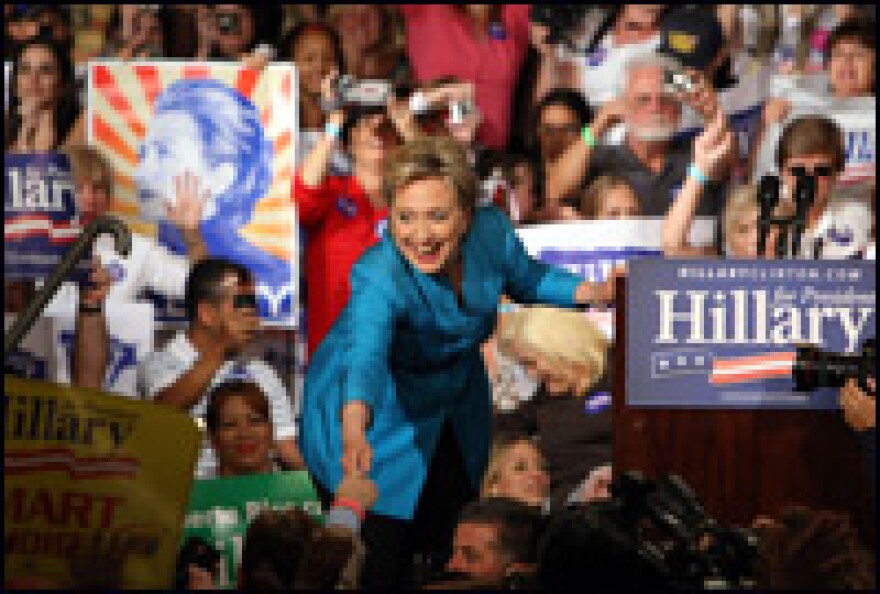

While Illinois Sen. Barack Obama has maintained a steady lead in delegates since late February, there are signs that New York Sen. Hillary Clinton is nowhere near giving up her bid for the presidency.
The weekend was another busy one on the campaign trail, with a primary held in Puerto Rico. The final primaries in South Dakota and Montana are scheduled for Tuesday. As predicted by the polls, Clinton won and earned 39 of Puerto Rico's 55 delegates.
She used her victory speech to state that by counting Puerto Rico and the disputed Michigan and Florida contests, she has now won more votes in primaries than Obama. Despite still trailing in the delegate race, Clinton almost seemed to be claiming the nomination in Puerto Rico.
"We are winning the popular vote," she said in her victory speech. "Now there can be no doubt. The people have spoken and you have chosen your candidate, and it's important where we have won. We are winning these votes in swing states and among the very voters that Democrats must win to take back the White House."
At that very hour, Obama was in a very different place: Mitchell, S.D., in an iconic building known as the Corn Palace, where giant murals made of real corn decorate the exterior walls.
Obama said he had just called and congratulated Clinton on Puerto Rico. Still, his comments looked toward the general election and his run at the White House against Arizona Sen. John McCain. "I know there are a lot of Democrats who've been concerned about whether or not the party's going to be able to come together after his long contest," he said. "Sen. Clinton is an outstanding public servant. She has worked tirelessly in this campaign. She has been a great senator for the state of New York, and she is going to be a great asset when we go into November to make sure that we defeat the Republicans."
Despite Obama's look ahead to a unified party, there was still plenty of anger from the Clinton campaign.
Rancor from Clinton Supporters
Saturday's decision by the Democratic Party's Rules and Bylaws Committee to seat delegates from Michigan and Florida triggered a new round of anger from Clinton supporters; most controversial is the Michigan compromise, which has Obama getting nearly half the delegates even though he removed his name from the Michigan ballot when the national party said the primary would not count.
Top Clinton campaign adviser Harold Ickes was on CNN Sunday. "They hijacked. They just plain reached in and grabbed four delegates from Hillary," he said. "It's unheard of and unprecedented in this party — to take delegates from a candidate and give them to another candidate is quite incredible."
On Fox News Sunday, former Congressman David Bonior appeared on behalf of Obama. He disputed the notion that Clinton now holds the lead in popular votes.
"You have a number of caucuses where they didn't count the actual number of people who showed up at the caucus. So if you add those numbers in, we believe that we still have the lead on the popular vote," he said.
He also noted that the rules of the party say that you win the nomination by amassing delegates. Obama was asked on Saturday night if he will declare victory overall on Tuesday, since his campaign says he needs fewer than 50 more delegates to clinch the nomination. Obama says if they go over the top, he will announce it.
"I think even if we don't, this is the end of the primary season. And I think it's very important for us to pivot and focus on the clear contrast that will exist between Democrats and Republicans in this election," he said.
How and when this marathon battle finally concludes could have a major impact on whether Democrats are able to solely focus anytime soon on beating Arizona Republican Sen. John McCain.
Copyright 2023 NPR. To see more, visit https://www.npr.org.


